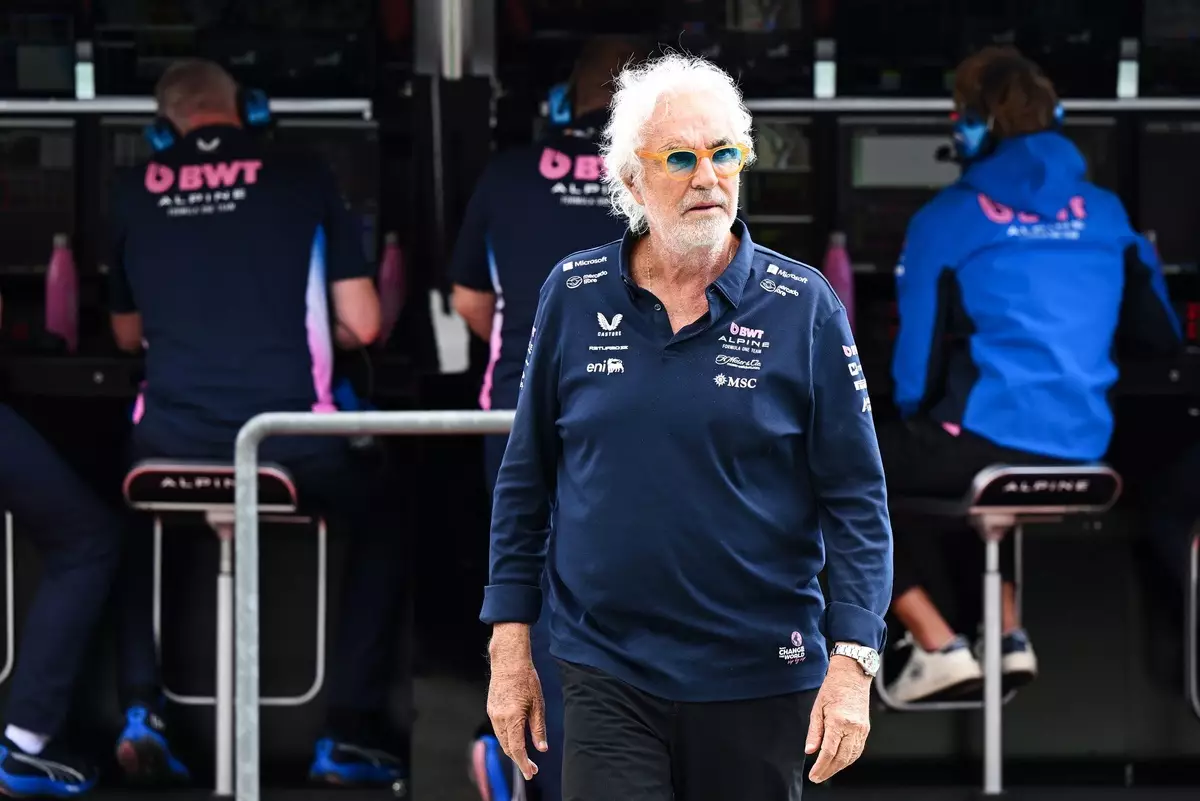Flavio Briatore is a name that evokes mixed reactions within the world of Formula 1. His storied career is marked by triumph as well as scandal, notably his involvement in the infamous ‘Crashgate’ affair. Yet, despite the tarnished reputation, his undeniable expertise in the realm of competitive racing positions him uniquely within the Alpine team. As Alpine navigates a challenging 2025 season, accumulating a meager seven points and replacing Jack Doohan with Franco Colapinto, Briatore’s role as an executive advisor has evolved into something more authoritative, often leading to intense debate among fans and analysts alike.
Entering the 2026 season with a fresh set of regulations, Briatore’s assertive assertions that there are “no excuses” for Alpine to aim for victories reflect his palpable ambition and urgency. He expresses a steadfast belief in the team’s ability to contend for not only wins but championships, a sentiment that adds pressure to his already pivotal role. This commitment springs from a broader desire for the team to honor its partnership with Renault, emphasizing a responsibility to deliver results both on the track and to their parent company.
The Strategic Shift to Mercedes Power
One of the most significant changes that Briatore is spearheading is the impending switch to Mercedes engines in 2026. With Renault’s decision to exit F1, this maneuver is pivotal for Alpine’s competitive edge. Briatore’s candid acknowledgment that the team’s past disadvantages in power units necessitated this change highlights a crucial understanding of modern Formula 1 dynamics. In today’s arena, having the right tools can mean the difference between mid-field mediocrity and championship glory.
However, Briatore’s lamentation that securing a talent such as Max Verstappen is unrealistic underscores a harsher truth: the best drivers want the best machinery. While the switch to Mercedes is intended to level the playing field, the challenge remains to harness this potential effectively. This raises questions about the team’s capability to develop alongside their new power unit while integrating it into their existing framework. Briatore’s assertion that ‘the easiest way to win is to sign Max Verstappen’ demonstrates that his pragmatism is undergirded by a clear strategy.
Back in the Limelight
Having previously brought success to the Enstone-based squad, guiding it to three constructors’ championships, Briatore’s re-entry into the spotlight is underscored by his willingness to navigate the complexities of team dynamics. His controversial past means that every move he makes is scrutinized through a lens of skepticism and intrigue, not merely admiration. Though he carries a cloud of past controversies, the ability to transform those experiences into lessons for the present is where his true value lies.
Briatore’s overtaking of operational matters following Oliver Oakes’ departure signals a decisive shift in strategy. His assertion of being “100% committed” reveals a remarkable resolve to not only influence the team’s direction but also actively manage its intricate challenges. The clarity with which he addresses the operational void left by Oakes speaks volumes about his leadership style—direct, engaged, and unapologetically hands-on.
The Road Ahead: Challenges and Opportunities
While Briatore’s unshakeable confidence in Alpine achieving success by 2027 fuels optimism, the path forward is fraught with challenges. The reformation of a racing team takes time, resources, and above all, collaborative synergy among its departments. His acknowledgment of being surrounded by a “very strong team” hints at the importance of a unified vision that integrates technical prowess with astute commercial strategies.
As the contours of the 2026 regulations loom large, Briatore’s focus on interpreting and executing these changes effectively will be paramount. For a team like Alpine, reallocating resources, attracting talent, and maintaining morale while pivoting strategies constitutes weekly lessons more than mere monthly goals. After all, in the high-stakes environment of Formula 1, the line between success and failure can be razor-thin.
In essence, with Briatore at the helm, Alpine is positioned to embark on an ambitious trajectory. Yet, the real scrutiny may not come from external competitors but from the relentless expectations he sets upon himself and the team—an elements that could either catapult them into the elite echelon or prove to be an insurmountable challenge.

